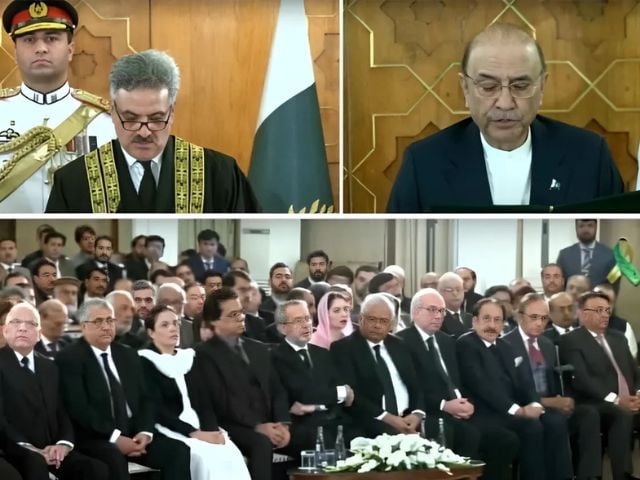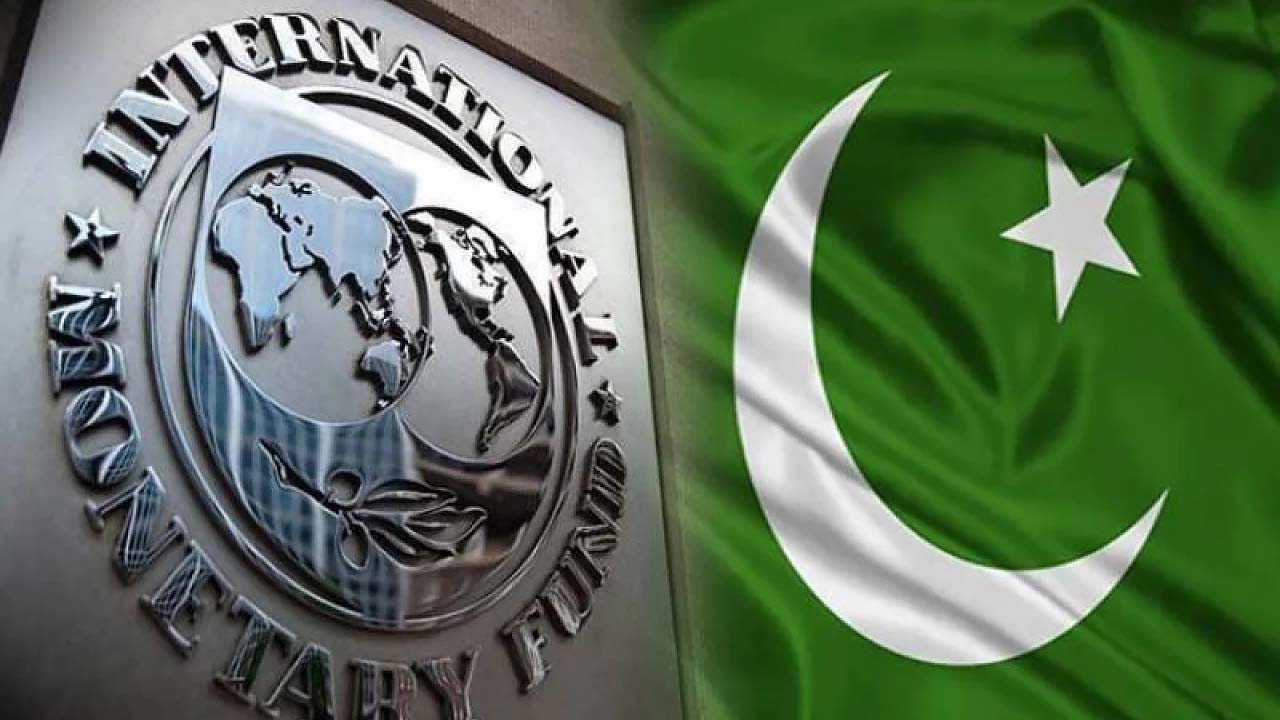PTBP Web Desk
Justice Yahya Afridi was sworn in as Pakistan’s 30th Chief Justice on Saturday in a ceremony at the President House in Islamabad.
The ceremony marked a significant transition in the judiciary, as Justice Afridi took over the position from Justice Qazi Faez Isa, who stepped down on October 25. The oath of office was administered by President Asif Ali Zardari, signifying the formal start of Justice Afridi’s three-year term as Chief Justice of Pakistan.
The event was attended by several high-profile dignitaries, including Prime Minister Shehbaz Sharif, Chief of Army Staff General Asim Munir, and various judges from the Supreme Court of Pakistan. The occasion underscored the importance of the judiciary’s role in upholding the rule of law and ensuring justice in the country. Justice Afridi’s appointment represents a new chapter for the Supreme Court, bringing fresh leadership to the apex judicial body.
Justice Afridi’s nomination as the Chief Justice was approved by President Zardari on October 23, following constitutional procedures outlined in Articles 175A(3), 177, and 179 of the Constitution of Pakistan. The nomination was first put forward by the Special Parliamentary Committee, composed of both government and opposition members. This committee had nominated Justice Afridi for the Chief Justice position following the passage of the 26th Amendment, which included provisions for judicial appointments.
His selection came as part of an established process aimed at ensuring a transparent and inclusive approach to appointing the Chief Justice. The 26th Amendment facilitated broader consultation and consensus-building in judicial appointments, reflecting the commitment to maintaining the independence and integrity of the judiciary. This historic appointment highlights Justice Afridi’s distinguished career and achievements, setting the stage for his leadership in the country’s judicial system.
Justice Yahya Afridi brings a wealth of experience and a diverse background to the role of Chief Justice. He received his early education at Aitchison College in Lahore, one of the country’s premier educational institutions. He furthered his academic pursuits by earning a Bachelor of Arts degree in Political Science and Economics from Government College Lahore, followed by a Master’s degree in Economics from Punjab University, Lahore. His academic credentials laid a strong foundation for his career in law and judiciary.
Justice Afridi began his judicial career in 2010 when he was appointed as a judge of the Peshawar High Court. His dedication and legal acumen soon earned him recognition, and on December 30, 2016, he made history by becoming the first judge from the Federally Administered Tribal Area (FATA) to assume the office of Chief Justice of the Peshawar High Court. This milestone was not only significant for his personal career but also represented a progressive step for the judiciary, bringing representation from the tribal areas into a prominent judicial role.
In 2018, Justice Afridi’s judicial journey continued to advance as he was elevated to the Supreme Court of Pakistan. His tenure as a Supreme Court judge was marked by several important rulings and contributions to the development of the law in Pakistan. His appointment as Chief Justice reflects the culmination of years of dedicated service and commitment to the legal profession, positioning him to lead the Supreme Court during a critical period.
Justice Afridi’s appointment comes at a time when the judiciary faces multiple challenges, including the need for judicial reforms, addressing case backlogs, and upholding the principles of justice and the rule of law. His experience, particularly his historic role as the first judge from FATA to lead the Peshawar High Court, provides a unique perspective that could contribute to more inclusive judicial policies and reforms.
As Chief Justice, Justice Afridi is expected to focus on strengthening the judiciary’s capacity to deliver timely and fair justice, addressing systemic issues, and promoting the independence of the courts. His leadership will be instrumental in shaping the direction of the judiciary over the next three years, as Pakistan navigates complex legal and constitutional challenges.
The ceremony at the President House was attended by notable figures from the judiciary and government, symbolizing the seamless transition of power and the continuity of the legal system. Prime Minister Shehbaz Sharif’s presence, along with that of the Chief of Army Staff General Asim Munir, underscored the significance of the judiciary in the country’s governance and its role in maintaining checks and balances.
Justice Qazi Faez Isa, whose tenure ended on October 25, was known for his emphasis on judicial independence and his efforts to uphold constitutional principles. His departure marks the end of a distinct period in the Supreme Court’s history, with Justice Afridi now taking the reins to guide the judiciary forward. The transition between the two judges is expected to maintain the judiciary’s trajectory towards reinforcing the rule of law and addressing the legal needs of the nation.
As the newly appointed Chief Justice, Justice Afridi will likely prioritize judicial reforms, focusing on increasing efficiency within the courts and reducing the backlog of cases. There is also an anticipation that he will continue efforts to make the judiciary more accessible to the public, enhancing transparency and accountability in judicial proceedings. His background, which combines a solid legal foundation with significant judicial experience, positions him to bring a balanced approach to leadership.
Justice Afridi’s three-year term will be closely watched as he takes on the responsibility of leading one of Pakistan’s most important institutions. The challenges facing the judiciary, including evolving legal standards and the need for modernization, will require strong and visionary leadership. Justice Afridi’s experience and record suggest that he is well-equipped to address these challenges while upholding the principles of justice and fairness.




